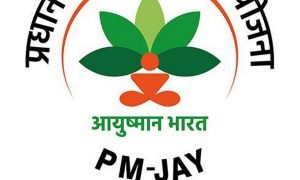Union Budget 2024: The FM said that more than two-thirds of tax filers availed of the new personal income tax regime in the last fiscal year. The two changes — new tax slabs and standard deduction — will enhance the new tax regime’s attractiveness further.
Read More:- India LTCG at 12.5%! Here’re capital gains tax structures in China, US, others
Union Budget 2024: Finance Nirmala Sitharaman, in a major relief to the taxpayers, tweaked the tax slabs for the New Tax Regime. The FM also announced an increase in the standard deduction to Rs 75,000 from the previous Rs 50,000, which can be availed by taxpayers opting for the New Tax Regime. The Old Tax Regime has been kept untouched.
The Finance Minister in her Budget speech said: “I have two announcements to make for those opting for the new tax regime. First, the standard deduction for salaried employees is proposed to be increased from Rs 50,000 to Rs 75,000. Similarly, deduction on family pension for pensioners is proposed to be enhanced from Rs 15,000 to Rs 25,000. This will provide relief to about four crore salaried individuals and pensioners.”
Read More:- India’s Tax Regime Set For A Major Upgrade, Govt Puts Income Tax Act 1961 Under Review; Check Key Reasons
How much tax do I have to pay? Calculate now
The FM said that more than two-thirds of tax filers availed of the new personal income tax regime in the last fiscal year. The two changes — new tax slabs and standard deduction — will enhance the new tax regime’s attractiveness further.
Under the revised New Tax Regime, incomes within the Rs 3-6 lakh range were previously taxed at a rate of 5%. This tax rate will now be applicable to incomes within the Rs 3-7 lakh range. Furthermore, earnings falling within the Rs 6-9 lakh bracket were formerly taxed at a rate of 10%. This has been updated to pertain to incomes ranging from Rs 7-10 lakh. Lastly, the tax rate of 15% will apply to incomes within the Rs 10-12 lakh range, replacing the previous Rs 9-12 lakh tier.
Read More: Made a mistake in ITR filing? No need to file revised ITR; check out this new feature
Here are new tax slabs the New Tax Regime
Rs 0-3 lakh: Nil (unchanged)
Rs 3-7 lakh: 5% (vs 5% for Rs 3-6 lakh before)
Rs 7-10 lakh: 10% (vs 10% for Rs 6-9 lakh before)
Rs 10-12 lakh: 15% (vs 15% for Rs 9-12 lakh before)
Rs 12-15 lakh: 20% (unchanged)
Above Rs 15 lakh: 30% (unchanged)
Taxpayers who belong to the highest tax bracket, defined as individuals with a taxable income of Rs 15 lakh or higher, are set to benefit from the increased standard deduction limit in the New Tax Regime. This enhancement will result in a savings of Rs 7,500 for these taxpayers. Furthermore, the rationalisation of tax rates will lead to an additional savings of Rs 10,000 for this specific group of taxpayers. Consequently, they can enjoy a total savings of Rs 17,500 due to these combined benefits.
How much tax will you pay if your salary is Rs 7.75 lakh
Read More: Budget 2024 Highlights On Income Tax: Revised Tax Slab In New Tax Regime
In the full Budget 2023, the Centre made adjustments to the income tax structure. Specifically, the income rebate threshold under the New Tax Regime was raised from Rs 5 lakh to Rs 7 lakh.
Furthermore, the standard deduction of Rs 50,000, initially applicable only to salaried taxpayers and pensioners, was expanded to encompass the new tax regime. Consequently, individuals with an income of up to Rs 7.5 lakh were exempt from income tax liabilities.
The FM tweaked this a bit further and with the increase in the Standard Deduction to Rs 75,000. As a result, individuals with annual incomes of up to Rs 7.75 lakh will now enjoy a tax-free status.
Here’s the breakup
Annual Income: Rs 7.75 lakh
Standard deduction: Rs 75,000
Total taxable income: Rs 7 lakh
Tax on income up to Rs 3,00,000- Nil
Tax on Income Rs 3,00,001 – Rs 7,00,000: 5% or rs 20,000
Rebate under section 87A- Rs 25,000
Annual Income: Rs 10 lakh
Individual taxpayers with an annual income of up to Rs 10 lakh will have to pay Rs 42,500 as tax under the revised new tax regime. The breakdown includes a Standard Deduction of Rs 75,000, resulting in a taxable income of Rs 9,25,000, as per Upstox calculations.
For this income bracket,
Tax on Rs 3,00,000 is Nil
Tax on Income Rs 3,00,001 – Rs 7,00,000 is 5% or Rs 20,000,
Tax on Rs 7,00,001 – Rs 9,25,000 is 10% or Rs 22,500.
The total applicable tax is Rs 42,500.
Read More: ITR filing 2024: A tweak leaves many taxpayers in a bind. Here’s what the problem is
Annual Income: Rs 12 lakh
Individuals with an annual income up to Rs 12 lakh will have to pay a total income tax of Rs 68,750 under the revised new tax regime, compared to Rs 82,500 previously.
The total income earned is Rs 12,00,000 with a standard deduction of Rs 75,000, resulting in a taxable income of Rs 11,25,000. For this income range, the tax calculation is as follows:
Tax on Rs 3,00,000 – Nil
Tax on Rs 3,00,001 – Rs 7,00,000: 5% or Rs 20,000
Tax on Rs 7,00,001 – Rs 10,00,000: 10% or Rs 30,000
Tax on Rs 10,00,001 – Rs 11,25,000: 15% or Rs 18,750
Hence, the total applicable tax amounts to Rs 68,750.
Read More: ITR Filing 2024: Which Income Tax Regime Is Better For NRIs? Check Expert Inputs Here
Annual income: Rs 20 lakh
According to the new income tax regulations, individuals earning an annual income of ₹20,00,000 will now be liable to pay ₹2,67,500 in taxes, in comparison to the previous amount of ₹2,85,000.
Breakdown of Tax Calculation:
Total Income: Rs 20,00,000
Standard Deduction: Rs 75,000
Taxable Income: Rs 19,25,000
Tax on Rs 3,00,000 – Nil
Tax on Rs 3,00,001 – Rs 7,00,000: 5% or Rs 20,000
Tax on Rs 7,00,001 – 10,00,000: 10% or Rs 30,000
Tax on Rs 10,00,001 – Rs 12,00,000: 15% or Rs 30,000
Tax on Rs 12,00,001 – Rs 15,00,000: 20% or Rs 60,000
Tax on Rs 15,00,001 – Rs 19,25,000: 30% or Rs 1,27,500
Total applicable tax: Rs 2,67,500
Read More: Union Budget 2024: 6 new changes to income tax that the new budget may bring
FM Sitharaman also announced a plan to conduct a thorough review of the Income-Tax Act, 1961, with the goal of making the legislation more concise, clear, and easily comprehensible. Her objective is to simplify the Act to minimize disputes and litigation, ultimately enhancing tax certainty for taxpayers. This comprehensive review is expected to help reduce the amount of contentious issues entangled in legal battles arising from tax-related matters.





































